
How do B2B platforms enhance petroleum coke trade in the Middle East?
Petroleum coke (Petcoke), a solid carbon-rich material derived from oil refining, plays a vital role in commodity trade across West Asia and the Middle East. The region is a significant producer of petcoke, with its production driven by the abundance of crude oil and advanced refining capacities. Middle Eastern petcoke, also known as petroleum coal, is utilized in industries such as cement, steel, and aluminum, owing to its high calorific value and cost-effectiveness compared to traditional fuels. However, its environmental impact and fluctuating market prices remain challenges. B2B marketplaces in Asia, including platforms like Aritral, are transforming the trade dynamics of petcoke and related commodities such as engine oil, base oil, bitumen, and paraffin. Verified exporters and importers on these platforms provide streamlined supply chain solutions, ensuring reliable and transparent transactions. These trade advertising platforms also offer regional product listings and market insights, enabling businesses to navigate pricing trends and demand fluctuations effectively. The engine oil market, intrinsically linked to base oil, paraffin, and bitumen trade, is similarly impacted by B2B dynamics.
For instance, base oil, a key raw material for engine oil production, sees significant demand in West Asia. Supply chain solutions facilitate its movement across borders, while regional product listings and verified suppliers enhance accessibility. Bitumen and paraffin, essential for construction and industrial applications, also benefit from similar supply chain efficiencies provided by trade platforms. Petroleum coke suppliers in West Asia and petcoke manufacturers in the Middle East are leveraging these platforms to expand their reach. Market insights reveal that West Asia’s production rate of petroleum coke is steadily growing, driven by industrial demand and competitive pricing. As the global commodity trade evolves, businesses must continuously adapt to shifting market dynamics, supported by tools like AI-powered B2B platforms. Aritral offers services such as product listing, direct communication, and AI-powered marketing to enable seamless global trade operations.
-
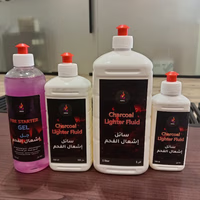 Abaq 3 months ago
Abaq 3 months ago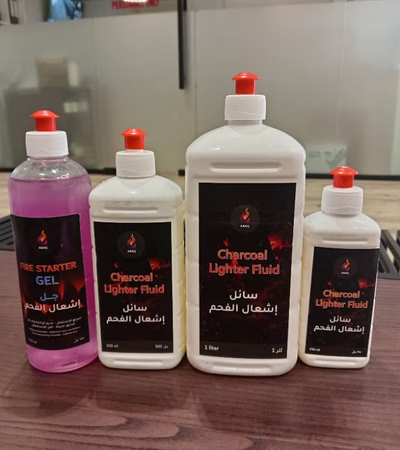 Oman
High-quality, fast-igniting liquid and gel charcoal and wood burner
Oman
High-quality, fast-igniting liquid and gel charcoal and wood burner
High-quality, fast-igniting liquid and gel charcoal and wood burner is an excellent product with environmentally friendly materials without smoke or e...Details
-
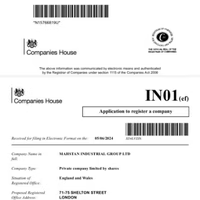 Mahstan Industrial Group Ltd 3 months ago
Mahstan Industrial Group Ltd 3 months ago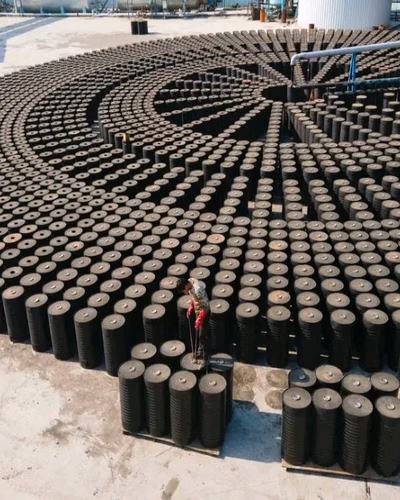 Iran
Crude oil, and petrochemical and petroleum and bitumen and Urea46 %
Iran
Crude oil, and petrochemical and petroleum and bitumen and Urea46 %
Mahestan Industrial Group, production and trade of crude oil, petroleum and petrochemical derivatives, ready to establish business relations all over ...Details
-
 Yahya Abdulla Jalid 3 months ago
Yahya Abdulla Jalid 3 months ago United Arab Emirates
Construction Materials
United Arab Emirates
Construction Materials
Construction MaterialsDetails
-
 Saber Zohrabzadeh 3 months ago
Saber Zohrabzadeh 3 months ago Iran
Natural and Organic Products
Iran
Natural and Organic Products
Completely natural organic animal products and rare plants from the Zagros Mountains of IranDetails
-
 Transwelt Handelsbüro 3 months ago
Transwelt Handelsbüro 3 months ago Germany
Petroleum products, sugar, copper, olive oil, honey, rice and coffee
Germany
Petroleum products, sugar, copper, olive oil, honey, rice and coffee
I trade in petroleum products, sugar, rice, olive oil, and copper, but I am not a seller; rather, I am a commercial broker.Details
-
 Yasir 3 months ago
Yasir 3 months ago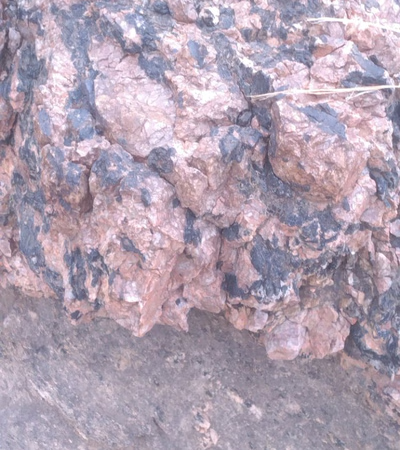 Yemen
Precious Stones
Yemen
Precious Stones
I have relied on GodDetails
-
 Shams International Trading Company 3 months ago
Shams International Trading Company 3 months ago Iran
Import and export of all kinds of commercial goods
Iran
Import and export of all kinds of commercial goods
Ready to cooperate in the field of international trade with all countries allowed to tradeDetails
-
 Ali Al-Shammari 3 months ago
Ali Al-Shammari 3 months ago Russia
General Trade
Russia
General Trade
Wood trade and general tradeDetails
-
 Saleh Aljabri 3 months ago
Saleh Aljabri 3 months ago Saudi Arabia
Steel
Saudi Arabia
Steel
We act as intermediaries in the trade of steel and oil and its derivatives. We are looking for customers in Azerbaijan to purchase rebar and railway b...Details
-
 Arbenco Petrochemical Company 3 months ago
Arbenco Petrochemical Company 3 months ago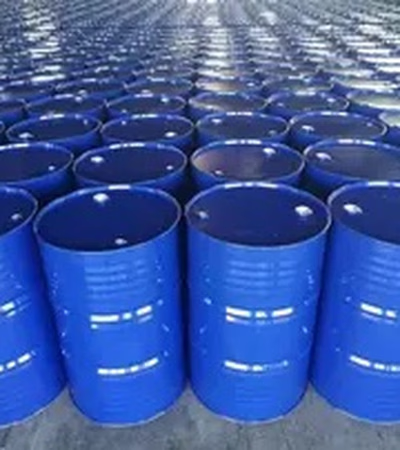 Bahrain
I have 50 thousand tons of methanol. Do you buy or do I have a customer for them?
Bahrain
I have 50 thousand tons of methanol. Do you buy or do I have a customer for them?
For sale: 50 thousand barrels of methanol, phone number: 0097339211616Details
-
Exploring Base Oil Trade in the Middle East and West Asia

Base oil, a fundamental raw material in the production of lubricants such as engine oil, holds significant importance in the Middle Eastern and West Asian commodity trade. Base oil serves as the backbone for various products, including bitumen, paraffin, and petroleum coke, making its trade dynamics critical to regional economic activity. In Southwest Asia, the brokerage of base oil thrives due to a robust network of verified exporters and importers facilitated by B2B marketplaces and trade platforms. These platforms enhance supply chain solutions by enabling direct communication between commercial players and promoting regional product listings. The engine oil market in West Asia underscores the increasing demand for high-quality base oil. The trade trends in this region reflect the growing integration of base oil into broader petroleum-based commodities, such as bitumen and asphalt. Bitumen, essential for road construction, and asphalt are heavily traded in the Middle East, aligning with infrastructure development goals. Similarly, petroleum coke (petcoke), another byproduct, is widely used in industrial applications, with key suppliers and manufacturers concentrated in West Asia.
Paraffin, available in liquid and solid forms, plays a pivotal role in the regional market. Derived from crude oil, its trade is expanding due to its versatile applications, ranging from candle production to industrial coatings. The Middle East and West Asia are evolving into hubs for paraffin intermediaries, further bolstered by efficient supply chain frameworks. Aritral, an AI-powered B2B trade platform, offers verified listings, market insights, and brokerage solutions, supporting commercial players in navigating the complexities of international trade for base oil and related commodities. By leveraging such platforms, businesses gain access to new markets, increased visibility, and streamlined operations in the engine oil and base oil sectors.
-
Bitumen and Asphalt Trade Insights in West Asia

Bitumen, commonly referred to as asphalt, plays a critical role in the commodity trade dynamics of West Asia and the Middle East. Derived from crude oil, bitumen serves as a key material in road construction and industrial applications. The Middle East, known for its rich petroleum reserves, is a significant player in the global bitumen market. The trade of bitumen and related petroleum products, such as base oil, paraffin, and petroleum coke, is facilitated by advanced B2B marketplaces and supply chain solutions. These platforms help verified exporters and importers connect efficiently, ensuring reliable transactions and optimized logistics. In the engine oil sector, bitumen and base oil are integral as raw materials. The demand for engine oil across West Asia has grown due to the region"s expanding automotive industry. B2B trade platforms provide market insights, regional product listings, and direct communication channels, allowing businesses to explore trends in engine oil trade.
Base oil, a primary component of engine oil, also sees robust demand, with its trade dynamics influenced by factors like pricing, quality, and supplier reliability. Petroleum coke, another derivative, is essential for industries such as cement and power generation. Manufacturers and suppliers across West Asia benefit from trade advertising platforms that boost visibility and networking opportunities. Similarly, paraffin, available in both liquid and solid forms, is widely used in packaging, pharmaceuticals, and cosmetics. Its trade in West Asia is supported by intermediaries specializing in regional logistics and market intelligence. Aritral, an AI-driven B2B trade platform, simplifies these transactions by offering tools like product listing, direct communication, and AI-powered marketing. This digital ecosystem enhances transparency, reduces barriers, and fosters growth in the Middle East commodity market. "
-
Engine Oil Trade Dynamics in West Asia and Middle East
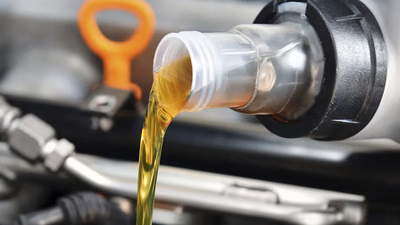
Engine oil, a critical lubricant for automotive and industrial machinery, plays a vital role in ensuring efficient performance and durability. In West Asia and the Middle East, the engine oil market is heavily influenced by regional trade dynamics, with strong ties to the petroleum industry. The trade of base oil—a primary component of engine oil—and its derivatives such as bitumen, paraffin, and petroleum coke, serves as the backbone for many regional import/export activities. West Asia is a hub for engine oil production and distribution, with verified exporters and importers utilizing B2B marketplaces to connect with buyers across Asia. Platforms specializing in commodity trade within the Middle East offer regional product listings and market insights, fostering business networking opportunities. These tools are crucial for understanding the nuances of engine oil quality, pricing, and types, which vary based on viscosity grades and applications in cars, heavy-duty vehicles, and industrial machinery. Base oil, the foundation for manufacturing engine oil, is brokered extensively in Southwest Asia. Key players in the region ensure a steady supply chain for production facilities, with trade advertising platforms promoting transparency and verified transactions.
Similarly, bitumen and petroleum coke markets in West Asia are significant for road construction and industrial energy needs, with competitive pricing influenced by global crude oil trends. Paraffin, another petroleum byproduct, is vital for both solid and liquid applications. Its trade in the Middle East intersects with broader commodity flows, emphasizing the importance of intermediaries who bridge supply-demand gaps. Aritral, an AI-driven B2B platform, simplifies the trade of engine oil and its components, providing services like product listing, AI-powered marketing, and direct communication tools to support global sales. With verified profiles, Aritral fosters trust and efficiency, enabling businesses to capitalize on the robust trade opportunities in West Asia"s oil-based industries. "
-
Paraffin Trade Insights in West Asia and the Middle East
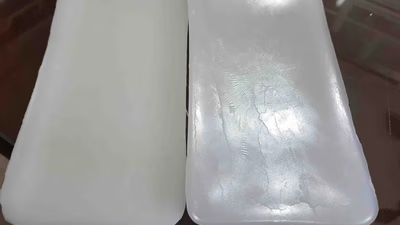
The paraffin trade in West Asia and the Middle East has emerged as a significant commodity market, driven by its diverse applications in industries such as cosmetics, pharmaceuticals, and manufacturing. Paraffin, derived primarily from petroleum, comes in both liquid and solid forms, categorized under types like paraffin wax (HS Code 271290) and paraffin oil (HS Code 271210). West Asia’s extensive petroleum reserves make it a global hub for paraffin production, with verified exporters and importers leveraging regional B2B marketplaces to facilitate trade. Commodity-focused platforms in the Middle East, such as Aritral, have simplified international trade by offering supply chain solutions and verified listings of paraffin products. These platforms enable businesses to access market insights, streamline logistics, and build robust business networks. Liquid paraffin, commonly used in pharmaceuticals, and solid paraffin, prevalent in candle-making and coatings, are highly demanded across Asia. The paraffin market intertwines with other petroleum-based commodities like base oil, bitumen, and petroleum coke. Base oil, a precursor to engine oil, is essential in lubricant production, while bitumen dominates the construction sector.
These interconnected markets benefit from B2B advertising platforms that enhance visibility and trust among regional stakeholders. The rise of AI-driven trade solutions further impacts commodity markets in West Asia, ensuring transparency and efficiency in paraffin and other petroleum derivatives. B2B marketplaces foster direct communication between manufacturers and buyers, promoting high-quality paraffin production and distinguishing premium-grade paraffin from substandard variants. West Asia’s trade landscape continues to evolve, emphasizing the role of verified exporters and importers in shaping global supply chain dynamics. Aritral, as an AI-powered B2B platform, exemplifies how digital tools transform commodity trading in the region, offering services like product listings, marketing insights, and global sales assistance to streamline paraffin and related markets.
-
Petroleum Coke Trade Insights in West Asia

Petroleum coke (Petcoke), a solid carbon-rich material derived from oil refining, plays a vital role in commodity trade across West Asia and the Middle East. The region is a significant producer of petcoke, with its production driven by the abundance of crude oil and advanced refining capacities. Middle Eastern petcoke, also known as petroleum coal, is utilized in industries such as cement, steel, and aluminum, owing to its high calorific value and cost-effectiveness compared to traditional fuels. However, its environmental impact and fluctuating market prices remain challenges. B2B marketplaces in Asia, including platforms like Aritral, are transforming the trade dynamics of petcoke and related commodities such as engine oil, base oil, bitumen, and paraffin. Verified exporters and importers on these platforms provide streamlined supply chain solutions, ensuring reliable and transparent transactions. These trade advertising platforms also offer regional product listings and market insights, enabling businesses to navigate pricing trends and demand fluctuations effectively. The engine oil market, intrinsically linked to base oil, paraffin, and bitumen trade, is similarly impacted by B2B dynamics.
For instance, base oil, a key raw material for engine oil production, sees significant demand in West Asia. Supply chain solutions facilitate its movement across borders, while regional product listings and verified suppliers enhance accessibility. Bitumen and paraffin, essential for construction and industrial applications, also benefit from similar supply chain efficiencies provided by trade platforms. Petroleum coke suppliers in West Asia and petcoke manufacturers in the Middle East are leveraging these platforms to expand their reach. Market insights reveal that West Asia’s production rate of petroleum coke is steadily growing, driven by industrial demand and competitive pricing. As the global commodity trade evolves, businesses must continuously adapt to shifting market dynamics, supported by tools like AI-powered B2B platforms. Aritral offers services such as product listing, direct communication, and AI-powered marketing to enable seamless global trade operations.
-
Advantages and disadvantages of using petroleum coke as fuel and its price
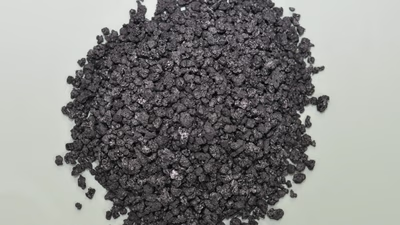
Petroleum coke (petcoke) is a carbon-rich solid derived from oil refining, widely used as fuel in various industries due to its high calorific value, which ranges from 7,500 to 8,500 kcal/kg. Its efficiency makes it suitable for processes requiring substantial heat, such as cement kilns and power plants. Petcoke is often more cost-effective than other fossil fuels like coal or natural gas, appealing to industries aiming to lower fuel expenses. Additionally, it serves in producing electrodes for aluminum and steel industries and can enhance the combustion efficiency of blended fuels. However, the use of petcoke presents challenges. Environmental regulations are tightening, potentially limiting its use and necessitating investments in emission control technologies. Public opposition arises from health and environmental concerns linked to petcoke combustion, which releases significant CO₂ and harmful pollutants like sulfur oxides and nitrogen oxides. These emissions can lead to air quality issues and contribute to climate change.
Furthermore, petcoke"s high sulfur content poses risks of acid rain formation and respiratory problems. Industries must also manage the ash produced during combustion, which requires additional infrastructure for proper disposal. Understanding the quality specifications of petcoke is crucial for effective utilization; poor choices can lead to inefficiencies and financial losses. "
-
What are the uses of petroleum coke?
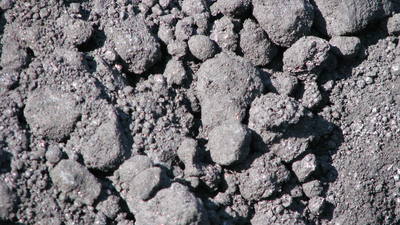
Petroleum coke, with a carbon content of 85% to 95%, serves multiple industrial applications due to its high calorific value and efficiency as a fuel source. It is primarily utilized in steelmaking, aluminum smelting, and the production of carbon-based products. Calcined petroleum coke is particularly valuable for its electrical conductivity, making it essential for carbon and graphite electrodes in aluminum production. Additionally, petroleum coke is used in power generation and cement kilns, where its heat-generating properties are advantageous. The material can be categorized into raw (green) and calcined types; the latter is preferred for its lower sulfur and ash content. In the cement industry, petroleum coke"s sulfur content eliminates the need for additional sulfur in cement production. Furthermore, it acts as a carbon source in alloy industries and is involved in various high-temperature industrial processes. Its availability as a byproduct of petroleum refining makes it an economical choice for many sectors.
The ability to modify petroleum coke through calcination enhances its quality for specialized applications, while blending with other materials can optimize its properties. Overall, petroleum coke stands out as a cost-effective alternative to traditional fuels and carbon sources across diverse industries. "
-
What is petroleum coke?
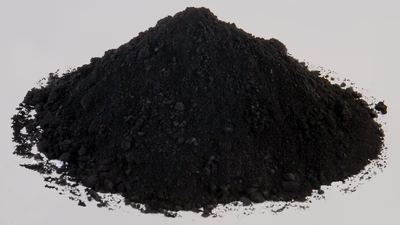
Petroleum coke, or petcoke, is a carbon-rich solid produced during the oil refining process. It results from the thermal decomposition of heavy crude oil into lighter fractions like gasoline and diesel. Composed of 85% to 95% carbon, petcoke serves as a valuable fuel source for industrial applications requiring high heat. The production process involves coking, which converts heavy petroleum residues into gases, liquids, and solids with high carbon content. There are two main types of petroleum coke: calcined and fuel-grade. Calcined coke undergoes further processing to enhance purity and is primarily used in aluminum production and steelmaking. Fuel-grade coke is less pure and mainly utilized as fuel in power plants and cement kilns. The demand for petroleum coke is driven by increasing oil consumption and the need for efficient energy sources in various industries.
Its global trade involves bulk transportation, making it a significant commodity in the market. The physical properties of petcoke determine its applications across sectors such as energy generation, metal smelting, and cement manufacturing.
-
What are the largest producers of petcoke in the world?
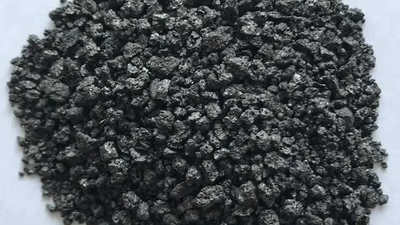
The largest producers of petroleum coke (petcoke) are primarily countries with significant oil refining capabilities, including the United States, China, India, Saudi Arabia, Brazil, Russia, Canada, and the European Union. Major oil companies such as ExxonMobil, Sinopec, and Saudi Aramco are key players in this sector. The U. S. leads in refining capacity and petcoke production due to its numerous refineries operated by companies like Chevron and BP. China’s industrial sector drives its high petcoke output through state-owned enterprises like Sinopec. India is rapidly expanding its refining capacity with Reliance Industries and Indian Oil Corporation as major contributors. Saudi Arabia"s vast oil reserves support substantial petcoke production primarily through Saudi Aramco.
While the Middle East has notable refining operations contributing to global petcoke supply, it does not lead in overall production compared to the U. S. , China, and India. The EU also plays a role in petcoke production with companies like Royal Dutch Shell involved in refining processes that yield petcoke as a byproduct. Other countries such as Brazil and Russia have well-established oil industries that contribute significantly to global petcoke output. "
-
What is the production rate of petroleum coke in West Asia (Middle East)?

Petroleum coke production in the Middle East is significantly influenced by the region"s oil refining capabilities, with major producers including Saudi Arabia, Iran, Iraq, Kuwait, and the UAE. The production rate varies based on oil output, refinery utilization, and market demand. Saudi Arabia leads with an estimated annual production of 5 to 10 million metric tons of petcoke, while Iran produces between 1 to 3 million metric tons. Kuwait also contributes significantly with similar production levels. The total petroleum coke output in the Middle East is estimated to range from 8 to 15 million metric tons annually. The aluminum industry is the largest consumer of petcoke globally, accounting for 76% of its usage. As demand for aluminum rises in the region, so does the need for petcoke. Modernization and expansion of refineries are expected to further boost production rates.
However, environmental regulations may pose challenges to production practices. "

















